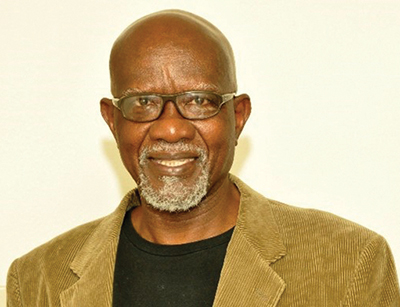By Randy Peters
Everyone has heard the advice to “listen to your heart.” This holds true especially when it comes to heart conditions like hereditary transthyretin amyloid cardiomyopathy (or hATTR-CM). It took years for me to get diagnosed. My body was telling me something was off – but at the time, I didn’t listen to it. Also, some doctors are not familiar with the disease. I saw six doctors before I was finally diagnosed with hATTR-CM – and my experience is not unusual. That’s why I’m so passionate about sharing my story.
My symptoms started four years before I was diagnosed. I was experiencing shortness of breath during my routine jogs. I also developed carpal tunnel syndrome (a condition that causes numbness, tingling, or weakness in the fingers), which was diagnosed by my primary care doctor, but I thought it was the result of my days as a college professor. We didn’t discuss ATTR-CM. I never imagined the carpal tunnel could be linked to the shortness of breath I was experiencing – and certainly not my heart.
One day, as my daughter watched me struggle to make it up the stairs, she insisted I go to the emergency room. A doctor there suggested I be tested for ATTR-CM and later I was diagnosed with ATTR-CM. Once I received my ATTR-CM diagnosis, I relied on my cardiologist for information. I also did a lot of my own research to stay informed.
I learned that there are two types of ATTR-CM – wild type and hereditary. Wild type is associated with aging, mostly affecting older white men. The hereditary type of the disease, which I was diagnosed with through genetic testing, is more prevalent in Black, African American, and Afro-Caribbean communities. It can be passed down from one generation to the next through specific genes. About three to four percent of African Americans carry a mutation in the TTR gene (V122i) that makes it more likely they’ll develop hATTR-CM. However, not all people that have the mutation develop the disease. Also, ATTR-CM gets worse over time. That’s why early diagnosis and appropriate disease management strategies are so important.
I never knew how much my life would change the day I was diagnosed. I am grateful to have an amazing support system and community around me. I work closely with my doctor to manage my hereditary ATTR-CM. My wife Priscilla is a big part of my disease management, and she helps me tremendously. I’ve had to make some changes: I watch my diet and how much salt I eat, but I still enjoy many of the things I love, including woodworking and staying fit. I also found peace in discussing my diagnosis with my family. Now they know that with genetic testing and counseling, they have a chance to better understand their risk. It’s important to remember that if you have hereditary ATTR-CM, it is not your fault. It is caused by a change in the TTR gene, and not something you have done.
I hope my story will help other families get the right diagnosis and not have to go through what I did. This is why I am excited to be partnering with Pfizer on Voices for the Heart in Miami – a community-based event that teams up with local organizations within Black, African American, and Afro-Caribbean communities around the country dedicated to raising awareness of hATTR-CM as an often-underdiagnosed cause of heart failure.
As part of the Voices for the Heart effort, I am a featured speaker that will appear at a virtual and in-person event on Wednesday, October 25 at 7:00 PM ET. At the event, people can learn more about hATTR-CM symptoms and diagnosis, and there will be additional educational resources on hATTR-CM available. For additional information on the event, please visit www.voicesfortheheart.com.
Let’s work together to raise awareness of hATTR-CM among family members, friends, and neighbors and encourage those experiencing unresolved symptoms and with a history of heart failure to talk to their doctor.
For resources on hereditary ATTR-CM, including a discussion guide to help conversations with your doctor, you can visit www.voicesfortheheart.com.
*A 7-year study in London, UK found a gene mutation (ATTR V122I) was the cause of heart failure in 211 out of 1392 Afro-Caribbean patients.

